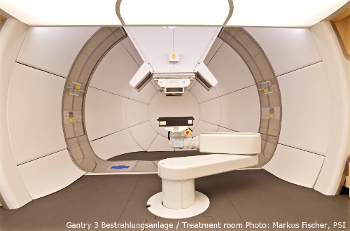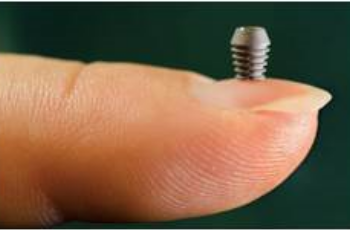Specialists in Surgical treatment of sinus disease
2 Specialists found
Information About the Field of Surgical treatment of sinus disease
Anatomy of Maxillary Sinuses
Our maxillary sinuses belong to the paranasal sinuses and are located in the upper jawbone on the left and right side of the nose. The maxillary sinuses are air-filled cavities covered by a mucous membrane with a narrow connecting passage to the inside of the nose.
However, pathogens can also enter the maxillary sinus via this passage, which serves to ventilate the paranasal sinuses. It is usually noticed by dull pressure in the area of the jawbones and headaches when the drainage passage is swollen and misplaced due to the inflammation.
The bony base of the maxillary sinus is also the tooth socket for the maxillary molars. Only a small layer of the bone separates the oral cavity from the maxillary sinuses. Therefore, some inflammations or diseases of the dental apparatus can also affect the maxillary sinuses.
In most cases, an expectorant and decongestant therapy is sufficient as a treatment for sinusitis (inflammation of the maxillary sinus), which frees the connecting passage between the nose and the maxillary sinuses and allows the accumulated mucus to drain.
But sinusitis is not always so easy to treat. Some diseases make it impossible for secretion and pus to drain off so that surgical treatment of sinusitis is the only effective therapy option.
When Does Maxillary Sinus Surgery Become Necessary?
Necessities for surgical treatment of sinusitis can either be caused by the teeth or the nose. For example, polyps (mucous membrane proliferation) or cysts (fluid-filled cavities) can obstruct the drainage passage. Diseased tooth roots, broken tooth root remains, foreign bodies, and infected dental implants can also lead to a jawbone defect and the displacement of germs into the maxillary sinus.
In most cases, swelling of the cheek and pain in the jaw area or the entire face occur in the course of the disease. If this cannot be remedied with medication, surgical treatment of the maxillary sinus disease is necessary. In rare cases, malignant tumors can also trigger chronic sinusitis.
What Is the Process of Sinus Surgery?
Surgical treatment of sinusitis offers various possibilities. Depending on the extent and symptoms, the doctor will individually choose the best option for you. Most of the surgeries take place in outpatient settings and can be carried out under local anesthesia in half-sleep.
If the irrigation of the maxillary sinuses is sufficient, the doctor can insert a tube into the maxillary sinus via the nose or a small opened access path via the oral cavity. The pus or secretion can drain through this, which is followed by rinsing with antibiotic or antiseptic agents.
If this treatment is not sufficient, the doctor can examine the maxillary sinuses and mucous membrane with a small camera (endoscopy). Tissue samples can be taken for excluding a malignant tumor. Polyps, jaw cysts, and broken root fragments can also be removed during this endoscopy.
If a dental disease has created an opening in the oral cavity, this must be closed with the help of autochthonous mucosa and possibly bone (closure operation). To guarantee permanent drainage of secretion, the bony wall can be fenestrated towards the nose (small hole to the lower nasal passage). In most cases, the maxillary sinus is tamponaded after the operation with a gauze covered cloth. After a few days, the tamponade can be removed via the nose.
Risks of a Maxillary Sinus Surgery
In principle, it is always possible that the doctor will determine during the surgery that other sinuses are also affected. The surgery will be extended in the same session, if possible, and all affected sinuses are treated.
As with any surgery, the surgery of maxillary sinus involves the risk of bleeding or secondary bleeding. It can also come to nerve injuries with short-term or rarely permanent numbness or paralysis. In rare cases, the mucous membrane of the nose may dry up.
Nevertheless, surgical treatment of sinusitis is accompanied by an excellent prognosis by ensuring sufficient ventilation of the maxillary sinus; if this is not the case, it can lead to renewed blockage and accumulation of germs with pus.
Which Doctors Are Specialists for Maxillary Sinus Surgery?
Maxillary sinus surgeries can be carried out by oral surgeons, oral and maxillofacial surgeons, or ENT specialists.
Sources:
- Schwenzer, Norbert; Becker, Thomas (2000): Zahn-Mund-Kiefer-Heilkunde. Lehrbuch zur Aus- und Fortbildung : Fortsetzung des Standardwerkes von Hofer, Reichenbach, Spreter von Kreudenstein, Wannenmacher. 3., aktualisierte und erw. Aufl. Stuttgart [u.a.]: Thieme.
Medical Articles
Your benefits
If you have found a matching specialist, you can contact him/her directly and upload records if needed. And in case you need treatment, you can…
We will direct your request to the appropriate specialists
We are happy to assist you in choosing a specialist for your needs. The service of PRIMO MEDICO is always free, confidential and discreet for…
The treatment of scoliosis in transition - When is surgery necessary?
Scoliosis is a lateral deviation of the spine. This usually involves torsion of the individual trunk sections as well as a change in the side…
Specialists' Second Opition
Many people suffer from shoulder pain or hip problems. In this case, doctors quickly recommend surgical intervention. But is this really always…
High-tech against cancer: new treatment facility put into operation
At the Paul Scherrer Institute in Switzerland a new state-of-the art treatment facility, the so-called Gantry 3, has been put into operation.
Implants: "The Longer, the Better" Has Had Its Days
Ultra-short implants have a significantly better durability than expected by experts - with lower costs, treatment times, and complications.
Modern Prostheses for Natural Walking
The ankle joint is particularly susceptible to degeneration such as osteoarthritis. It has to bear the greatest weight of all joints in the body.





![[Translate to English:] Zweitmeinung von Spezialisten [Translate to English:] Zweitmeinung von Spezialisten](/fileadmin/user_upload/Zweitmeinung-von-Spezialisten_350px.jpeg)


